
The Ethics of Photo Editing: Truth, Lies, and Views of the World
Since the earliest cave drawings, artists have interpreted the world around them in ways that best communicate what they want the viewers to understand.

Since the earliest cave drawings, artists have interpreted the world around them in ways that best communicate what they want the viewers to understand.
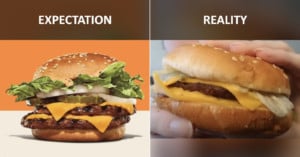
A group of customers has filed a lawsuit against the fast-food chain Burger King alleging that the company's advertising photos make the food look bigger than what they were served up in reality.

The Hakone Shrine in the touristy town of Hakone, Japan, is a popular photo location for Instagrammers. It's also a good "Instagram vs. Reality" example of how what's seen in social media photos often does not tell the whole picture.
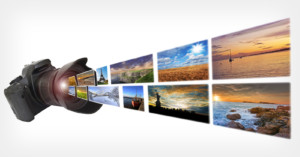
When an article critical of excessive photo manipulation (such as replacing the sky or adding fake reflections on water) is posted on photography news websites, it often generates a flood of comments, both in agreement and disagreement.

Twitter has launched a new program called Birdwatch that puts the power to fight misinformation in the hands of the public. The goal is to have crowdsourced fact-checking that can help identify fake or misleading Tweet content, including photos.
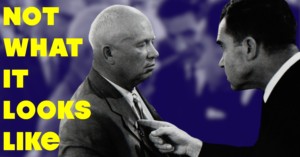
American people standing up to the Soviets! America needs Nixon! These were some of the tag lines attached to this photo during Nixon’s presidential campaign in 1960. But behind every picture, there is a story. And this is one of those photos where the story is just as good as the picture.

A photo showing crowds packing a beach in California during the state's COVID-19 lockdown sparked controversy this past week and led to the area's beaches getting shut down. Now that photo itself is at the center of a heated debate: many are saying that it's misleading because it was shot with a telephoto lens.
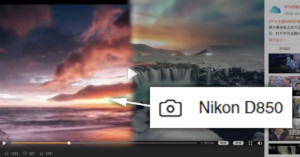
Huawei has apologized multiple times in the past after getting caught passing off DSLR photos as ones shot with its smartphone cameras, yet it seems like the company still hasn't learned from its blunders. The company was just caught faking smartphone photos yet again.

Landscape photographer Rachel Lerch spent the past three years selling some of her photos through stock agencies. In this 20-minute video, Lerch shares all the truths she has learned about how the story photo industry works and whether it's worth getting into.
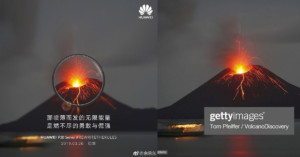
It looks like Huawei still hasn't learned its lesson after getting caught faking smartphone photos in ads multiple times. The company's latest teaser ads for the upcoming P30 Pro smartphone imply that they show sample photos, but they don't.
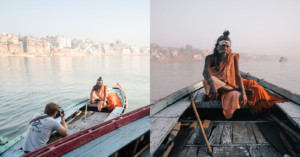
"Where should we go?" Melissa, my girlfriend, was trying to narrow down what seemed like a mountain of possibilities-places that were worthy of exploration. After a month of repeating that same question a million times, we finally settled on India.
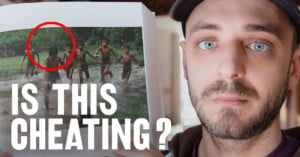
Where is the line between acceptable photo manipulation and cheating in photography? That's the question photographer Jamie Windsor asks and explores in this new 12-minute video.
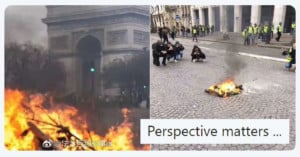
One of the most viral photos of the past few days has been a side-by-side comparison of two photos that purports to show how photographers covering the Paris protests are misrepresenting the truth.

Food photographers have an arsenal of tricks up their sleeves to make food look delicious on camera. And more often than not, these hacks make use of non-edible products that aren't appetizing. Blossom has created an eye-opening video that reveals the dirty (sometimes literally) little tricks of food photographers.
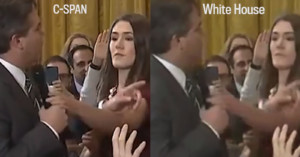
The White House is being slammed by press photographer associations for its use of a "clearly manipulated" video of a press conference exchange this past Wednesday.
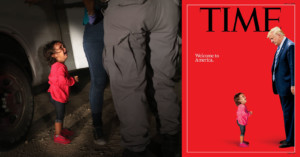
One of the most talked about photos in the ongoing immigration debate has been Getty Images photographer John Moore's iconic photo of a 2-year-old Honduran girl crying at the feet of her mother and a border patrol agent. It has become a symbol in the debate over family separations, but it has now come to light that the girl was never separated from her mother.

DxOMark's camera ratings are becoming more and more influential in the camera and smartphone industries. But how exactly do the scores work? Here's an 11-minute video in which tech personality Marques Brownlee (AKA MKBHD) shares "the truth about DxOMark smartphone ratings."
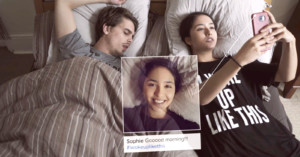
Here's a 3-minute video that shows the reality behind many picture-perfect Instagram photos. It was created by Ditch the Label, an anti-bullying organization working in the USA, UK, and Mexico.

Have you ever been disappointed that your smartphone's camera doesn't quite live up to the shots seen in commercials? "Shot on a Smartphone" often tags along at the end of ads featuring beautiful, cinematic-style shots.

These days there's a lot of talk about "fake news" on the Internet, and Facebook recently announced the introduction of fact checkers. Is that a good thing? I feel ambivalent about it, and I'll explain why.
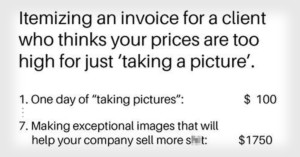
Photographer and photo educator Don Giannatti put together this simple (tongue-in-cheek) itemized invoice to show photography clients why photographers charge what they do for "taking a picture."
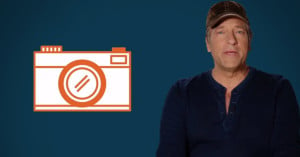
"Follow your passion" is a piece of life advice that's commonly thrown around. It's heard in the photography industry, and especially in graduation commencement speeches. But here's a 5-minute video in which well-known TV host Mike Rowe argues for the opposite: why you (maybe) shouldn't follow your passion.
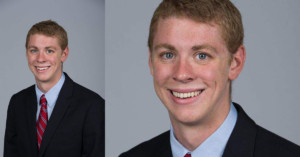
In March, ex-Stanford student athlete Brock Allen Turner was convicted of three felony counts: assault with intent to commit rape of an intoxicated woman, sexually penetrating an intoxicated person with a foreign object and sexually penetrating an unconscious person with a foreign object. Last week he was sentenced to six months in jail.
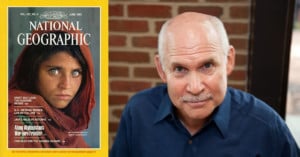
Steve McCurry has responded to the recent hoopla surrounding his Photoshopped photos. The famed photographer explains that he's now a "visual storyteller" rather than a photojournalist, but says he will "rein in his use of Photoshop" going forward to remove any confusion.
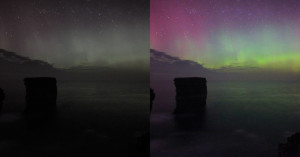
We’ve all seen those images over the past few years (popping up in our Facebook feeds or in the media) depicting spectacular displays of the Aurora Borealis or Northern Lights from Great Britain, Ireland or the lower 48 in the US. Regardless of the location, they’re pretty amazing images.
But beneath the wow-factor and thousands of ‘likes’ and ‘shares’ lurks a nasty little integrity issue. These aurora images may be photographic eye-candy, but many of them are pure high fructose corn syrup.
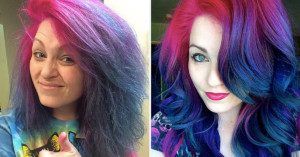
Kansas-based hair colorist Ursula Goff recently shared these two selfies side-by-side to show the same things can be presented in drastically different ways with a carefully planned photo.

Don McCullin, one of the world's great war photographers, believes that digital photography can be "a totally lying experience" and is something that can't be trusted.
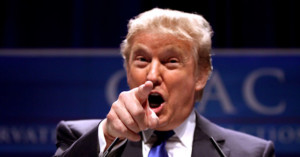
Donald Trump is lashing out at an Associated Press photographer over photos of empty chairs at a Trump speech in South Carolina. The presidential candidate is accusing the photojournalist of portraying a dishonest story through his photos.
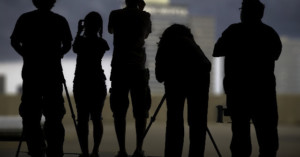
Here are some glitterbombs of truth about photography and being a photographer...
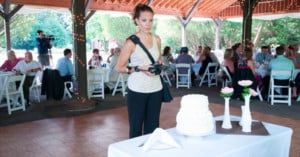
If you want to be a wedding photographer, you need to stop and think about your life.
So you want to be a wedding photographer? Want to go pro, go full-time, ditch that desk and take the industry by storm? Stop and think about your life. Do you LOVE to work? Like, truly LOVE working? Not the recognition, not the money and the fame, and least of all the internal accomplishment feedback that comes from achieving small successes that only you can see. Nope, you pretty much need to love doing the work.